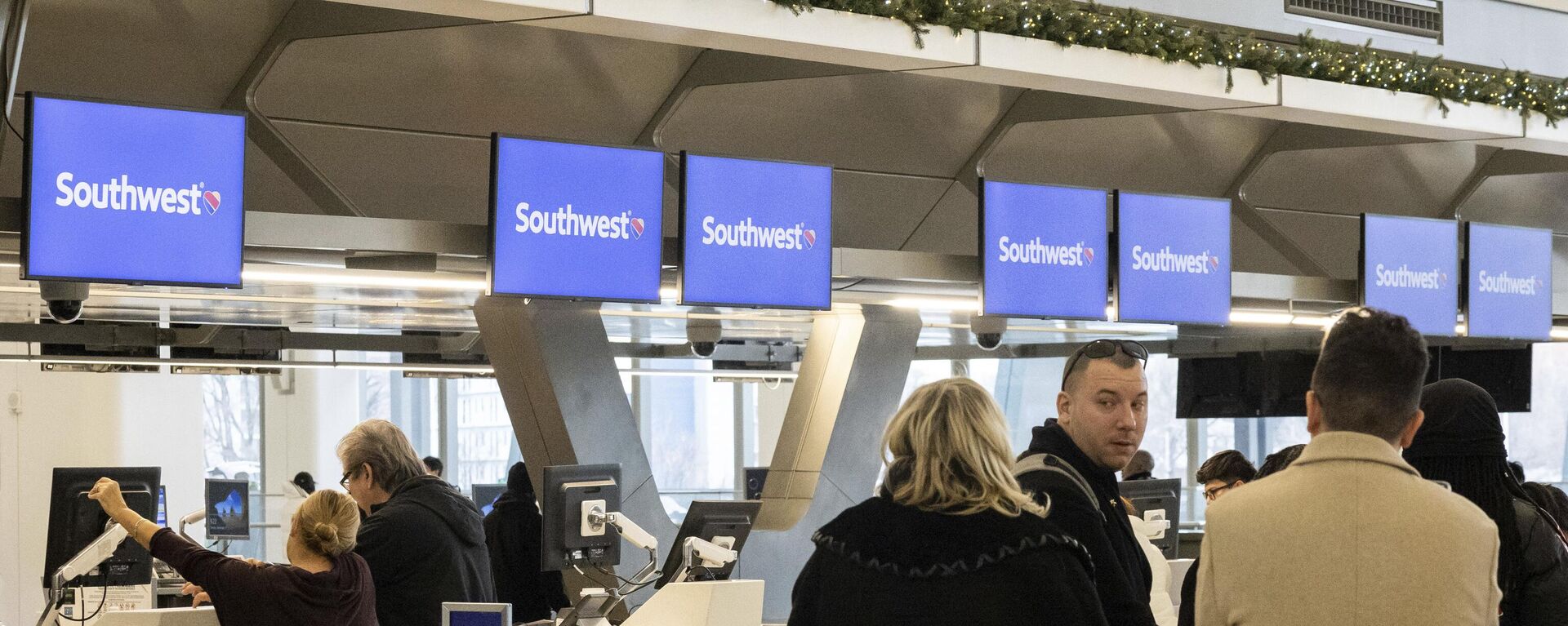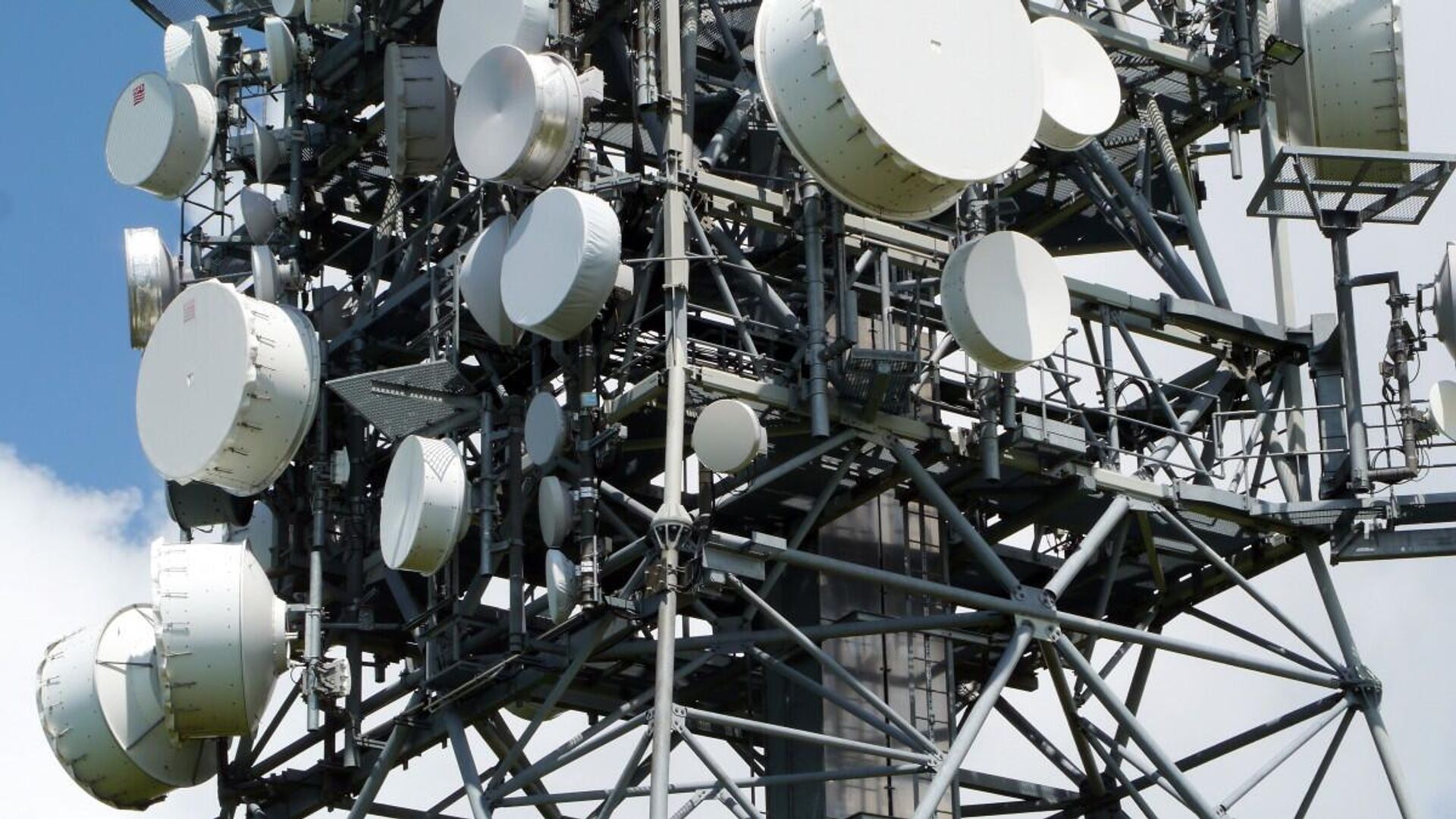https://sputnikglobe.com/20230701/us-aviation-industry-braces-for-5g-impact-on-aircraft-systems-1111605664.html
US Aviation Industry Braces for 5G Impact on Aircraft Systems
US Aviation Industry Braces for 5G Impact on Aircraft Systems
Sputnik International
New 5G networks set to activate near major airports this Saturday have sparked concerns over potential interference with aircraft systems as airlines reporting slow upgrades of their fleets.
2023-07-01T18:07+0000
2023-07-01T18:07+0000
2025-04-07T11:07+0000
beyond politics
society
pete buttigieg
joe biden
federal aviation administration (faa)
federal communications commission (fcc)
delta
alaska
viral news
https://cdn1.img.sputnikglobe.com/img/07e6/09/1d/1101345543_0:208:1200:883_1920x0_80_0_0_89baabe72165726a3b9865d3d391cc8f.jpg
A conceivable upset looms on the horizon starting Saturday due to the anticipated activation of new 5G networks by wireless providers around key airports across the US.For years, aviation experts have allayed fears over potential interference between 5G networks and aircraft systems, mainly instruments that leverage radio waves for assessing altitude, which is instrumental during landings in poor visibility conditions.In a move that averted predicted widespread flight disruptions last year, the Federal Aviation Administration (FAA) joined forces with airlines, successfully persuading telecom companies to delay the launch of their new services. In a crucial intervention, President Joe Biden mediated a compromise with telecom industry leaders, orchestrating a deferment of the 5G signal deployment around the country's 50 busiest airports until July 1 this year. This move provided airlines an additional year to undertake crucial fleet upgrades. Consequently, the coordinated strategy ensured an uninterrupted, smooth transition, averting a potential upheaval in air travel.Key players in the US airline industry, namely Alaska, American, Frontier, Southwest, and United, expressed that their entire fleet of aircraft is equipped with radio altimeters, essential for measuring altitude, built to withstand 5G interference.Delta Air Lines remains a unique case, with 190 planes, mostly smaller aircraft, that need altimeter upgrades due to supplier delays. Delta stated on Friday that it doesn't expect any flight cancellations due to the issue. According to media sources, the airline plans to carefully route its 190 planes to minimize flight disruptions or diversions caused by low visibility from fog or clouds.US Secretary of Transportation Pete Buttigieg recently cautioned airline companies about possible flight disruptions due to a minor segment of the national fleet remaining non-upgraded, hence vulnerable to radio interference. He reminded the head of the trade group Airlines for America last week that aircraft with retrofitted altimeters are authorized to land in situations of limited visibility. According to him, over 80 percent of US planes flying domestically are retrofitted. Still, many fleets, including those managed by foreign carriers, need upgrades.Major telecommunications operators, like AT&T and Verizon, use a segment of the radio spectrum known as C-Band for their latest 5G services - nearly the same as the frequencies in radio altimeters. The Federal Communications Commission (FCC) allocated licenses for this particular spectrum to these carriers and brushed off any risk of interference, citing sufficient buffer between C-Band and altimeter frequencies. But an official ALPA statement says:“Through June 30, 2023, when flying in US airspace, the following operations requiring radio altimeters are prohibited in the presence of 5G C-Band wireless broadband interference as identified by NOTAM (NOTAMs will be issued to state the specific airports where the radio altimeter is unreliable due to the presence of 5G C-Band wireless broadband interference)...”Airlines have noted the FAA’s sluggish approval of standards to upgrade radio altimeters, and supply-chain challenges hamper the production of sufficient devices. This has elicited criticism from industry experts, who frowned at the FCC's issuance of 5G licenses without parleying with aviation stakeholders.
https://sputnikglobe.com/20230113/us-aviation-authority-blames-recent-flight-meltdown-on-personnel-who-failed-to-follow-procedures-1106267372.html
alaska
Sputnik International
feedback@sputniknews.com
+74956456601
MIA „Rossiya Segodnya“
2023
Chimauchem Nwosu
https://cdn1.img.sputnikglobe.com/img/07e7/09/01/1113046371_0:99:1536:1635_100x100_80_0_0_9c5c627283eca931c39fe4852bbb301c.jpg
Chimauchem Nwosu
https://cdn1.img.sputnikglobe.com/img/07e7/09/01/1113046371_0:99:1536:1635_100x100_80_0_0_9c5c627283eca931c39fe4852bbb301c.jpg
News
en_EN
Sputnik International
feedback@sputniknews.com
+74956456601
MIA „Rossiya Segodnya“
Sputnik International
feedback@sputniknews.com
+74956456601
MIA „Rossiya Segodnya“
Chimauchem Nwosu
https://cdn1.img.sputnikglobe.com/img/07e7/09/01/1113046371_0:99:1536:1635_100x100_80_0_0_9c5c627283eca931c39fe4852bbb301c.jpg
new 5g networks, major us airports, aircraft systems, airlines, wireless providers, key airports across the us, interference between 5g networks and aircraft systems, radio waves, poor visibility conditions, capt. dennis tajer, american airlines, allied pilot association, faa, federal aviation administration, president joe biden, 5g signal deployment, fleet upgrades, alaska, american, frontier, southwest, united, delta air lines, 5g interference, us secretary of transportation, pete buttigieg, possible flight disruptions, retrofitted altimeters, airlines for america, us planes flying domestically, bad-weather, 5g c-band environment, buttigieg, telecommunications operators, at&t, verizon, c-band, 5g services, federal communications commission, fcc, notam, us airspace, radio altimeters, wireless broadband interference, 5g licenses, capt. jason ambrosi, delta pilot, president of the air line pilots association, alpa, altimeter frequencies
new 5g networks, major us airports, aircraft systems, airlines, wireless providers, key airports across the us, interference between 5g networks and aircraft systems, radio waves, poor visibility conditions, capt. dennis tajer, american airlines, allied pilot association, faa, federal aviation administration, president joe biden, 5g signal deployment, fleet upgrades, alaska, american, frontier, southwest, united, delta air lines, 5g interference, us secretary of transportation, pete buttigieg, possible flight disruptions, retrofitted altimeters, airlines for america, us planes flying domestically, bad-weather, 5g c-band environment, buttigieg, telecommunications operators, at&t, verizon, c-band, 5g services, federal communications commission, fcc, notam, us airspace, radio altimeters, wireless broadband interference, 5g licenses, capt. jason ambrosi, delta pilot, president of the air line pilots association, alpa, altimeter frequencies
US Aviation Industry Braces for 5G Impact on Aircraft Systems
18:07 GMT 01.07.2023 (Updated: 11:07 GMT 07.04.2025) New 5G networks set to activate near major US airports on Saturday have sparked concerns over potential interference with aircraft systems as airlines report slow upgrades of their fleets, which could potentially lead to air traffic disruptions.
A conceivable upset looms on the horizon starting Saturday due to the anticipated activation of new 5G networks by wireless providers around key airports across the US.
For years, aviation experts have allayed fears over potential
interference between 5G networks and aircraft systems, mainly instruments that leverage radio waves for assessing altitude, which is instrumental during landings in poor visibility conditions.
"Why in the world would you roll this out? This is just crazy.....I'm less worried about quick downloads of videos than I am about the safe download of passengers to the airport. The bottom line is, the 5G, it's a business transaction," Capt. Dennis Tajer, American Airlines pilot and Allied Pilot Association spokesman, argued during an interview.
In a move that averted predicted widespread flight disruptions last year, the Federal Aviation Administration (FAA)
joined forces with airlines, successfully persuading telecom companies to delay the launch of their new services. In a crucial intervention, President Joe Biden
mediated a compromise with telecom industry leaders, orchestrating a deferment of the 5G signal deployment around the country's 50 busiest airports until July 1 this year. This move provided airlines an additional year to undertake crucial fleet upgrades. Consequently, the coordinated strategy ensured an uninterrupted, smooth transition, averting a potential upheaval in air travel.
Key players in the US airline industry, namely Alaska, American, Frontier, Southwest, and United, expressed that their entire fleet of aircraft is equipped with radio altimeters, essential for measuring altitude, built to withstand 5G interference.

13 January 2023, 04:12 GMT
Delta Air Lines remains a unique case, with 190 planes, mostly smaller aircraft, that need altimeter upgrades due to supplier delays.
Delta stated on Friday that it doesn't expect any flight cancellations due to the issue. According to media sources, the airline plans to carefully route its 190 planes to minimize flight disruptions or diversions caused by low visibility from fog or clouds.
US Secretary of Transportation Pete Buttigieg
recently cautioned airline companies about possible flight disruptions due to a minor segment of the national fleet remaining non-upgraded, hence vulnerable to radio interference. He reminded the head of the trade group Airlines for America last week that aircraft with retrofitted altimeters are authorized to land in situations of limited visibility. According to him, over 80 percent of US planes flying domestically are retrofitted. Still, many fleets, including those managed by foreign carriers, need upgrades.
"This means on bad-weather, low-visibility days in particular, there could be increased delays and cancellations….Passengers must not bear the brunt of any airline's inability to equip sufficient aircraft to be able to operate safely in the 5G C-band environment," Buttigieg wrote.
Major telecommunications operators, like AT&T and Verizon, use a segment of the radio spectrum known as C-Band for their latest 5G services - nearly the same as the frequencies in radio altimeters. The Federal Communications Commission (FCC) allocated licenses for this particular spectrum to these carriers and brushed off any risk of interference, citing sufficient buffer between C-Band and altimeter frequencies. But an official
ALPA statement says:
“Through June 30, 2023, when flying in US airspace, the following operations requiring radio altimeters are prohibited in the presence of 5G C-Band wireless broadband interference as identified by NOTAM (NOTAMs will be issued to state the specific airports where the radio altimeter is unreliable due to the presence of 5G C-Band wireless broadband interference)...”
Airlines have noted the FAA’s sluggish approval of standards to upgrade radio altimeters, and supply-chain challenges hamper the production of sufficient devices. This has elicited criticism from industry experts, who frowned at the FCC's issuance of 5G licenses without parleying with aviation stakeholders.
The matter "...has left the safest aviation system in the world at increased risk... Ultimately, we will be able to address the impacts of 5G," Capt. Jason Ambrosi, Delta pilot and president of the Air Line Pilots Association, noted.




